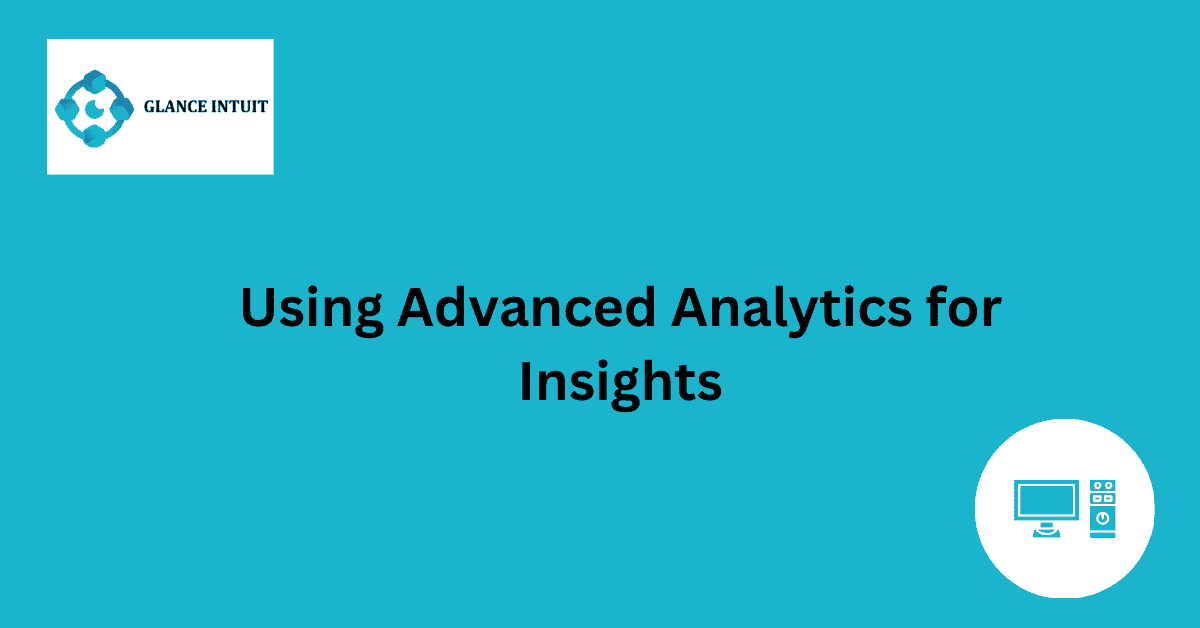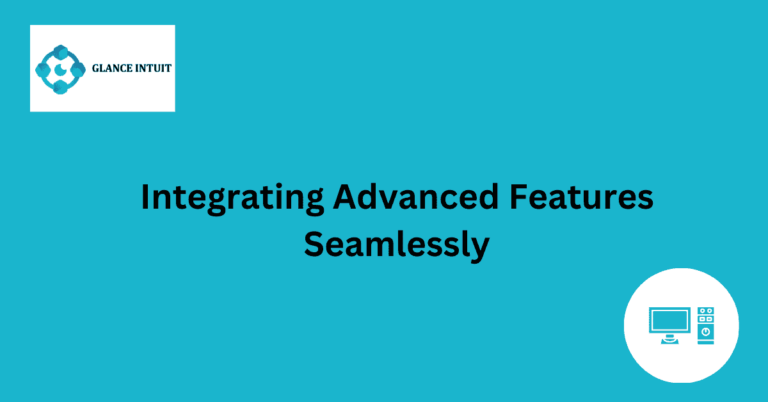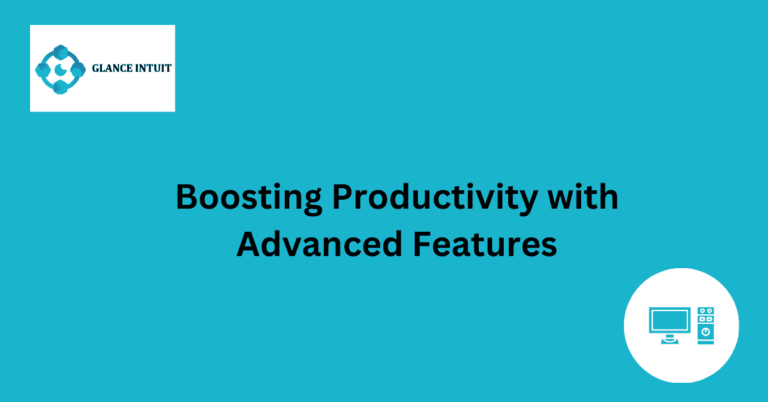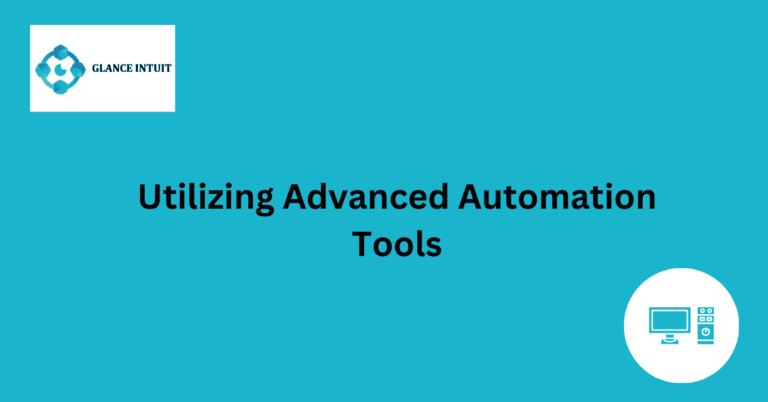Using Advanced Analytics for Insights
Using Advanced Analytics for Insights, businesses can gain valuable information to make informed decisions. By analyzing data trends and patterns, Glance Intuit provides actionable insights that drive strategic growth and improve overall performance. With a focus on harnessing the power of data, businesses can optimize operations and stay ahead of the competition.
Through the use of advanced analytics, Glance Intuit empowers organizations to uncover hidden opportunities and identify potential risks. By leveraging data-driven insights, businesses can enhance customer experiences, streamline processes, and increase profitability. With a commitment to delivering impactful results, Glance Intuit is a trusted partner in driving business success through data analysis.
Leveraging Data Trends for Informed Decisions
In today’s data-driven world, businesses are constantly seeking ways to make informed decisions that will drive success and growth. By leveraging data trends, companies can gain valuable insights into consumer behavior, market trends, and operational efficiency. With the help of advanced analytics tools like those offered by Glance Intuit, businesses can track and analyze data patterns to make strategic decisions that will propel them forward in the competitive market landscape. By understanding data trends, companies can stay ahead of the curve and adapt quickly to changes in the market, ultimately leading to improved decision-making processes.
Enhancing Customer Experiences through Analytics
One of the key benefits of using advanced analytics is the ability to enhance customer experiences. By analyzing customer data, businesses can gain insights into consumer preferences, behaviors, and feedback. This information can be used to personalize marketing efforts, improve product offerings, and provide better customer service. With the help of analytics tools, businesses can create targeted marketing campaigns, tailor products to meet customer needs, and ultimately increase customer satisfaction and loyalty. By focusing on enhancing customer experiences through analytics, companies can build strong relationships with their customer base and drive long-term success.
Streamlining Processes for Operational Efficiency
Operational efficiency is crucial for any business looking to maximize productivity and reduce costs. By utilizing advanced analytics tools, companies can streamline processes and identify areas for improvement. Through data analysis, businesses can identify bottlenecks in operations, optimize workflows, and automate repetitive tasks. This leads to increased efficiency, reduced waste, and improved overall performance. With the help of analytics, companies can make data-driven decisions that enhance operational efficiency, ultimately leading to cost savings and increased profitability.
Uncovering Hidden Opportunities with Data Insights
One of the most powerful aspects of advanced analytics is the ability to uncover hidden opportunities within data. By analyzing large datasets, businesses can identify patterns, trends, and correlations that may not be immediately apparent. These insights can lead to new business opportunities, innovative product ideas, and untapped market segments. With the right analytics tools in place, companies can unlock the full potential of their data and capitalize on opportunities that may have otherwise gone unnoticed. By focusing on uncovering hidden opportunities with data insights, businesses can position themselves for future growth and success.
Driving Strategic Growth with Analytical Tools
Strategic growth is essential for businesses looking to expand their market reach and increase profitability. By using advanced analytical tools, companies can develop data-driven strategies that drive growth and success. Through in-depth analysis of market trends, customer behavior, and competitor data, businesses can identify new growth opportunities and develop strategic plans to capitalize on them. By leveraging analytical tools, companies can make informed decisions that lead to sustainable growth and long-term success. With a focus on driving strategic growth, businesses can position themselves as industry leaders and adapt quickly to changing market conditions.
Identifying Potential Risks for Business Security
Risk management is a critical aspect of running a successful business. By using advanced analytics, companies can identify potential risks and threats to their operations. Through data analysis, businesses can detect patterns that may indicate security breaches, fraud, or other risks to the organization. By identifying potential risks early on, companies can take proactive measures to mitigate them and protect their business from harm. With the help of analytical tools, businesses can enhance their security measures, improve risk management processes, and safeguard their operations from potential threats.
Increasing Profitability through Data-Driven Strategies
Ultimately, the goal of any business is to increase profitability and drive success. By utilizing data-driven strategies, companies can optimize their operations, reduce costs, and maximize revenue. Through advanced analytics, businesses can identify areas for growth, streamline processes, and make informed decisions that lead to increased profitability. By focusing on data-driven strategies, companies can achieve sustainable financial success and outperform competitors in the market. With the right analytical tools in place, businesses can uncover new revenue streams, improve operational efficiency, and ultimately increase their bottom line.
Frequently Asked Questions
Explore the world of advanced analytics and gain valuable insights with our comprehensive FAQ section on Using Advanced Analytics for Insights. Dive into the details below to understand how you can leverage data to its full potential.
How can I use advanced analytics for gaining insights?
Advanced analytics involves using complex algorithms and statistical models to analyze data and uncover valuable insights that can drive strategic decision-making in various industries. By utilizing advanced analytics tools and techniques, businesses can extract valuable information from large datasets to predict trends, optimize operations, and identify opportunities for growth.
What are the benefits of using advanced analytics for business?
By harnessing the power of advanced analytics, businesses can enhance their decision-making processes, improve operational efficiency, and gain a competitive edge in the market. From predictive analytics to prescriptive analytics, advanced analytics techniques enable organizations to make data-driven decisions that drive innovation and drive success.
How can advanced analytics help in improving customer experience?
Advanced analytics can provide valuable insights into customer behavior, preferences, and trends, allowing businesses to personalize their offerings, optimize marketing strategies, and enhance overall customer experience. By analyzing customer data, businesses can create targeted campaigns, improve product recommendations, and deliver personalized services that resonate with their audience.
What are some common challenges in implementing advanced analytics?
While advanced analytics offers numerous benefits, organizations may face challenges such as data quality issues, lack of skilled resources, and complex implementation processes. Overcoming these challenges requires a strategic approach, investment in training and development, and collaboration between data scientists, analysts, and business stakeholders.
How can businesses leverage advanced analytics for forecasting and planning?
Advanced analytics enables businesses to forecast trends, predict outcomes, and optimize resource allocation for effective planning and decision-making. By using predictive modeling, data visualization, and scenario analysis, organizations can anticipate future events, mitigate risks, and seize opportunities for growth.
What are the key considerations for implementing advanced analytics in an organization?
Successful implementation of advanced analytics requires a clear strategy, alignment with business objectives, investment in technology infrastructure, and a strong data governance framework. Organizations must also prioritize data security, privacy, and compliance to ensure the ethical use of data in analytics processes.







